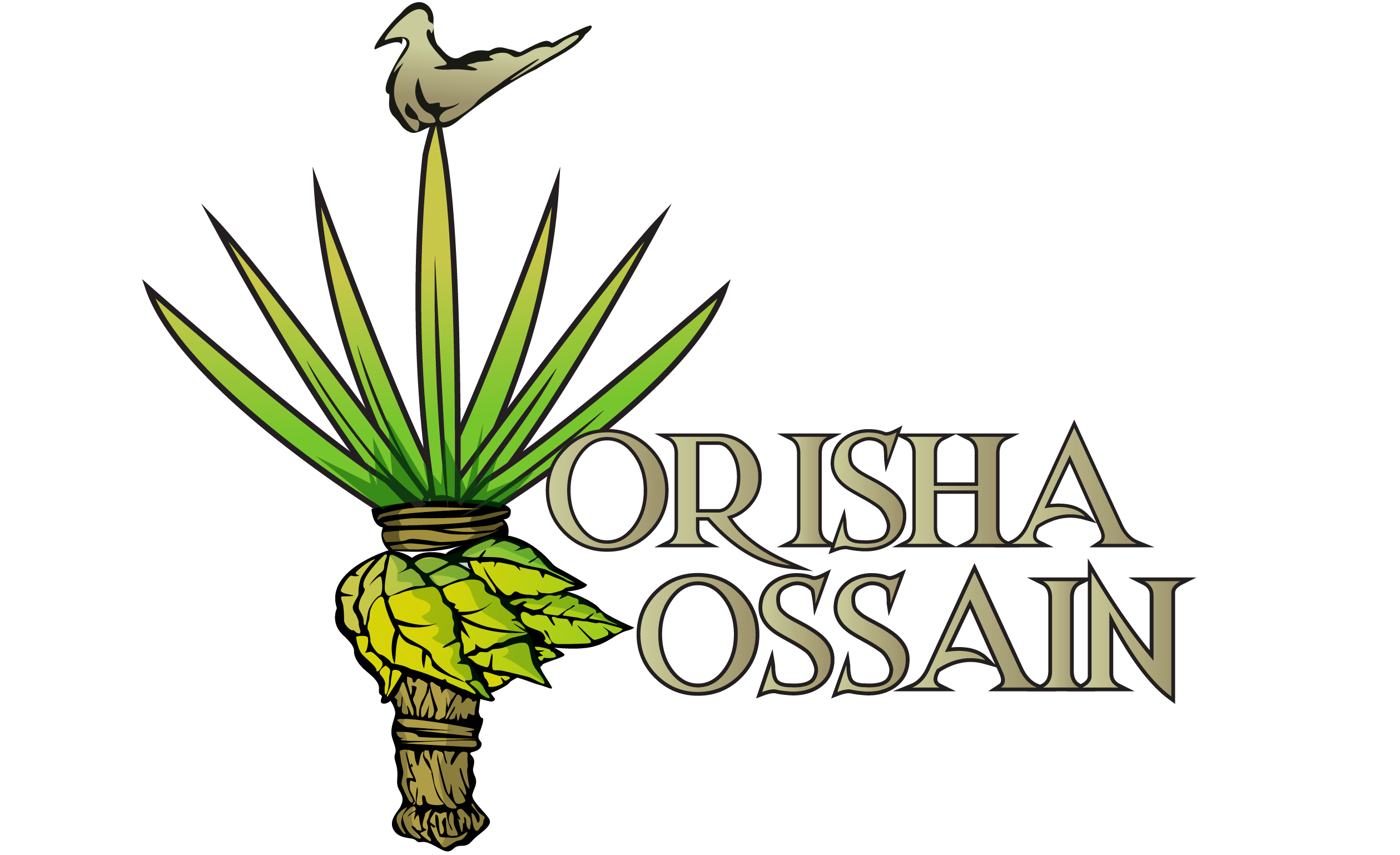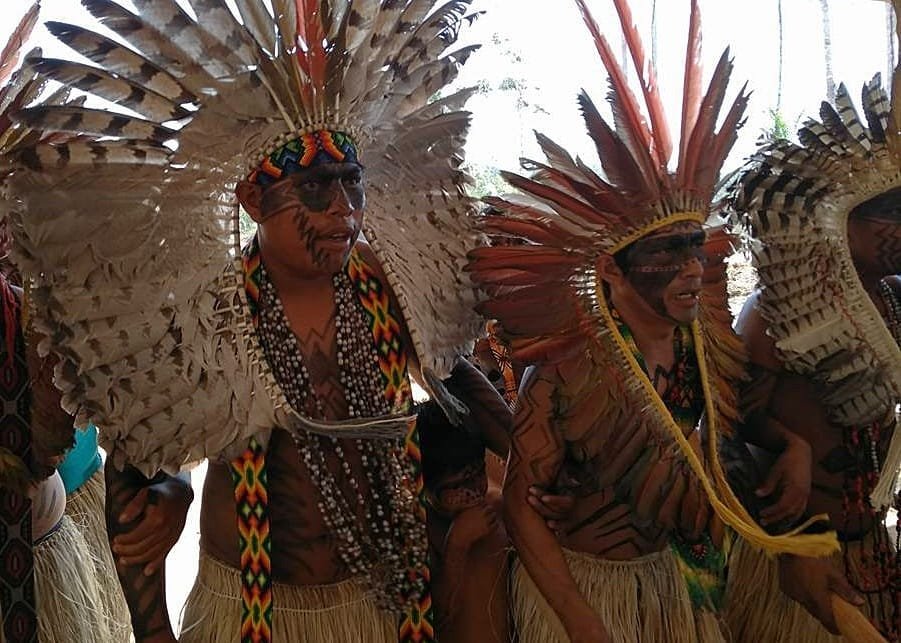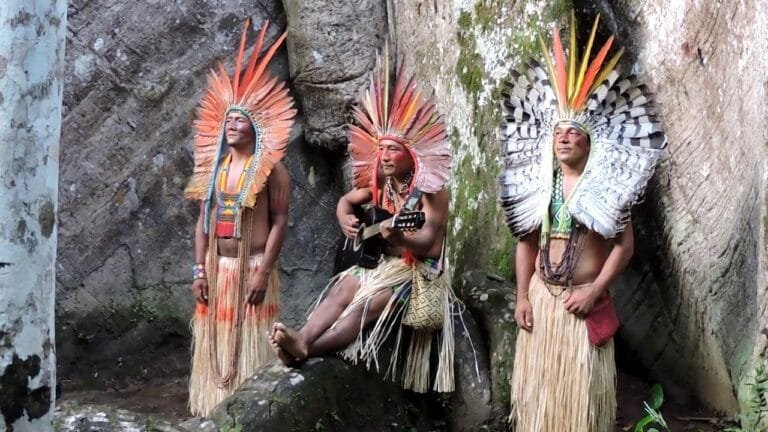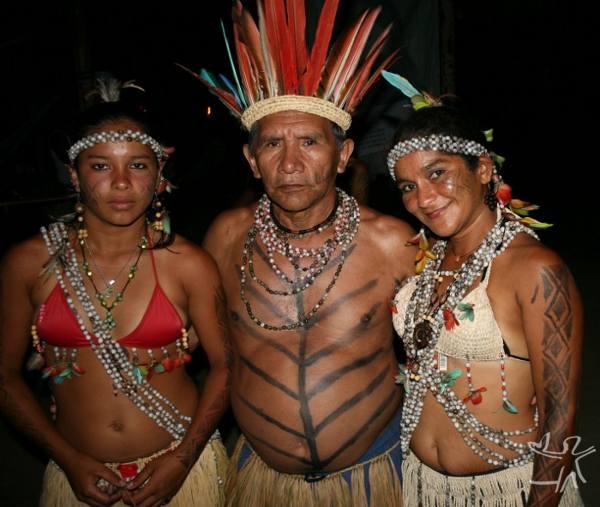The Katukina
Guardians of tradition and knowledge in the Amazon.
A Rich Cultural Legacy
The Katukina are an indigenous tribe belonging to the Pano linguistic family, inhabiting primarily along the Campinas and Gregório rivers in the Brazilian Amazon. Despite their long-standing contact with non-indigenous society, the Katukina have managed to preserve their language and many of their ancestral traditions, which distinguishes them from other tribes in the region.

The Katukina people are spread across two main tribal lands. The first is along the Gregório River, where they share territory with the Yawanawa, with whom they have extensive family ties. The second is near the Campinas River, close to Cruzeiro do Sul. Interestingly, despite living close to a road and being exposed to external influences, the Katukina have preserved their language remarkably well. Unlike many other Pano tribes, where traditional languages are fading and younger generations rarely speak them, most Katukina people speak their native Pano language fluently, only learning Portuguese around the age of eight. Many women and elders speak little to no Portuguese.
History of Resistance and Contact
The history of the Katukina is marked by exploitation during the rubber boom, which brought with it violence and plunder. Over the centuries, they faced significant challenges that impacted their social structure and way of life. However, they have shown remarkable resilience, adapting and surviving through profound changes in their environment.

Social Structure and Clans
The Katukina are divided into six clans: Varinawa, Kamanawa, Satanawa, Waninawa, Nainawa, and Numanawa, each with its own traditions and dietary restrictions that strengthen their identity and social cohesion. The clan structure is fundamental in the social organization of the tribe and in regulating marriages, which are crucial for maintaining genetic and cultural diversity.
Spiritual Practices and Kambo
One of the most distinctive characteristics of the Katukina is the use of Kambo, a traditional medicine derived from the secretion of a frog. Recognized as pioneers in the spread of Kambo, both inside and outside Brazil, the Katukina are known for their deep knowledge of this practice and for being guardians of a technique they consider sacred.
Current Challenges
Despite their deep connection to their traditions, the Katukina face ongoing challenges, such as the pressure of deforestation and the invasion of their lands. The fight for official recognition of their lands and the protection of their cultural heritage is constant and crucial for their future survival.
Language and Culture
The Katukina language is a living expression of their culture, with a unique structure that reflects their worldview. Although Portuguese has become more prevalent, especially among younger generations, the community makes significant efforts to teach and preserve their native language as a means of cultural resistance.







